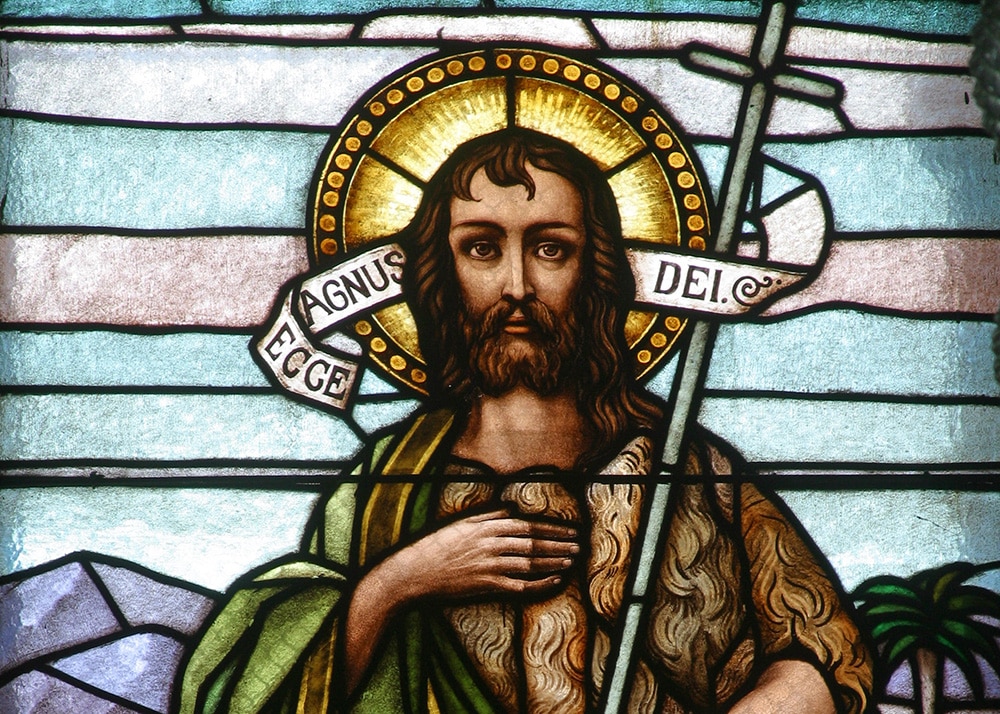
— Amy Nelson, Portland, Oregon
Answer: You are likely referring to a passage in John’s Gospel where St. John the Baptist says twice: “I did not know him” (Jn 1:31, 33). While it is possible that John and Jesus, though cousins, did not know each other, this seems unlikely. What is more likely is that John is speaking of the fact that he, by the Holy Spirit, has come to see Jesus in a deeper and more sublime way.
If at one time John the Baptist saw Jesus merely as a cousin, a carpenter and an ordinary man, he now sees Jesus as far more: as the preexistent Son, the Lamb of God who takes away the sins of the world, and as the eternal Son of God. This new vision is a work of the Holy Spirit, an anointing that enables John to see the depths and heights of Jesus’ glory as never before.
Given this new and profound understanding of Jesus, it is as if John the Baptist says, “Up till now, I don’t think I ever really knew him! He is far more than his humble appearance ever bespoke.” John marvels at his revealed glory.
And this is a challenge to us who need to grow from an ordinary understanding of Jesus as a historical person or ethical teacher to a richer understanding that he is Lord and glorious sustainer of all things.
It is also a challenge to us to realize that each of us has a hidden glory that we must come to appreciate. We are unique and have a particular role in God’s kingdom. We are unrepeatable and indispensable to God and his plan for us and all. And as we do this regarding ourselves, we must learn to do this in regard to others. Because each person is loved and directly willed by God into existence, we must see and respect the dignity of every human person. This is true, even of our enemies. One day in heaven we will surely see the sublime mystery and dignity of every human being as never before. We like John can surely say of the Lord and each other, “I never really knew you, but now I see.”
Land of milk and honey
Question: In the Bible, the Promised Land is called a land flowing with milk and honey. I was there this past year, and it didn’t look that way to me. It was brown and arid. Has something changed there, or do I misunderstand the texts?
— Harold Hanson, Buffalo, New York
Answer: This can be answered in several different ways. First of all, the Holy Land is a very complex biosphere. Simply to travel 10 miles can mean the difference between being in the forested hill country of Judea and the deep Judean desert. Just west of Jerusalem are the rolling hills and forests of Judea. Just east of Jerusalem the terrain drops 3,500 feet, and we go from trees and green grass to a very dry desert where Jericho and the dead sea are found. Further, Galilee tends to be more verdant than Judah in the South.
A second factor is that, like many Mediterranean areas, there is a dry season from May through August. Little rain falls in this period, and things go brown and dormant. In the wet season, September to April, things are green and fertile. So you may have seen the Holy in the dry season.
Finally, it is arguable that the Holy Land may have been wetter and greener in biblical times than today. Some scholars speculate that a general deforestation took place, especially in the period of the Jewish war with the Romans (A.D. 66-70) when many trees were felled to make siege engines and ramparts. This deforestation caused an expansion of arid lands. In a real sense, it was an ecological disaster as well as a terrible war in which more than a million people died.
Today, Israel is undertaking a plan to increase the number of trees in hopes of restoring a more verdant and healthier biosphere. Trees, of course, hold moisture and keep topsoil stable and richer.
Msgr. Charles Pope is the pastor of Holy Comforter-St. Cyprian in Washington, D.C., and writes for the Archdiocese of Washington, D.C. at blog.adw.org. Send questions to msgrpope@osv.com.





